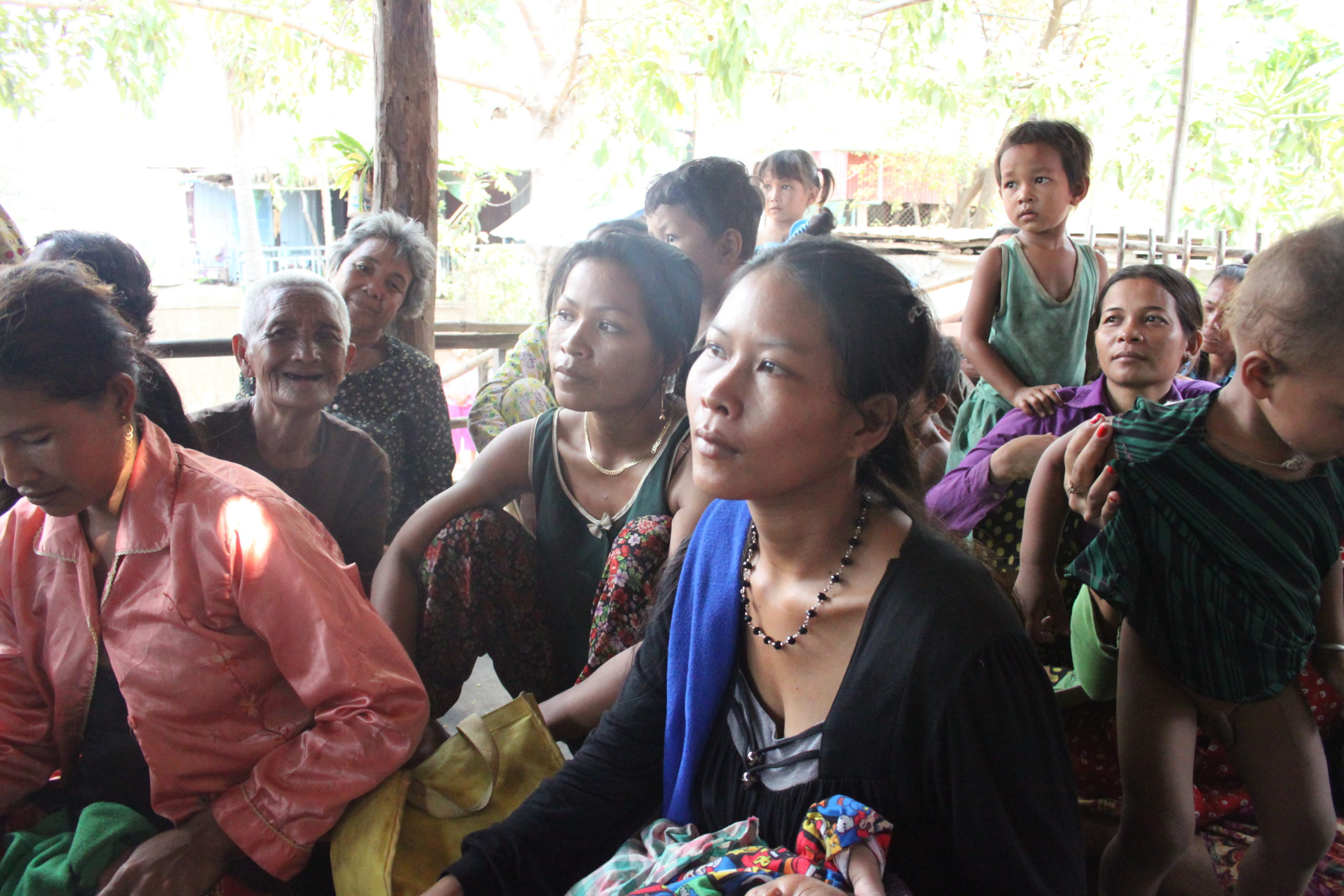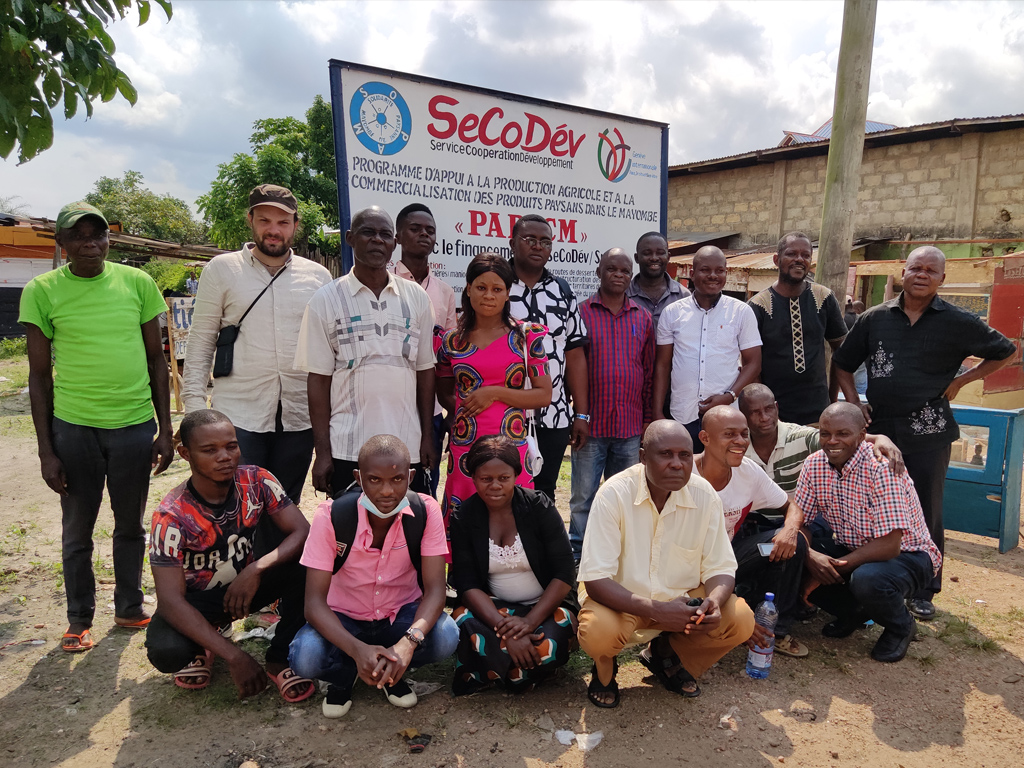Food sovereignty
One of the main steps towards development is to help people living in precarious food environment to achieve food sovereignty. Food sovereignty leads to the empowerment of populations and a significant improvement in living conditions.

Secodev has fifty years of expertise in supporting populations to achieve food sovereignty. Its successful formula is founded on collaborating with its partners on many fronts, in particular:
- Access to land and land rights
- Structuring rural farmers into farming organisations, cooperatives or associations
- Access to quality seeds
- Agroecology
- Breeding
- Production processing and storage techniques
- Market access and marketing
- Small business management techniques
- Awareness-raising and initiatives to protect the environment
Every new initiative is one step further towards food sovereignty. For example, by becoming a member of a rural farming organisation, a small producer will gain access to new seeds, learn new agroecological production techniques, better store and process their crops, and then sell them more efficiently for a better price. Consequently, the new member starts to enjoy better living conditions. Through crop diversification, they increase their yields and diversify their diet. Higher incomes allow families to improve their children’s nutrition and send them to school.
In 2020, 13,920 people (including 7,940 women) improved their living conditions.

Education & Vocational Training
Access to education and vocational training is one of the key triggers to development among the world’s poorest populations. Lack of access to education is a cause and consequence of poverty and often affects the most disadvantaged populations. In rural and remote areas, children and young people are often unable to attend school and/or study for professional qualifications.
Without vocational training, young people cannot access employment. It becomes a vicious circle. Children and young people make up the most vulnerable population group, but they also represent the future and society’s potential for evolution. They are easy prey in regions where insecurity, conflict and violence are the norm and where poverty and hunger are part of everyday life. Secodev has therefore chosen to focus its action on the schooling of children and the training of young people. In particular, the organisation proposes:
- Construction and/or renovation of school buildings in certain remote areas
- Vocational training for young people in fields offering good job prospects, notably agriculture (agroecology and agroforestry), mechanics, and catering/hospitality.
- Teacher training in new learning methods.
In Africa, Secodev has chosen to prioritise jobs related to agriculture and livestock and at the same time to change the negative connotation sometimes mistakenly associated with these professions. In countries where 70% of people work in agriculture and livestock, it is important to professionally train young people in this area.
In 2020, 1,630 children and young people (including 756 girls) benefited from improvements to their schooling or training.
Cross-cutting areas of intervention
Peacekeeping and prevention of conflict and violence
The various countries where Secodev operates all have in common volatile contexts, with the emergence or resurgence of conflicts. In some countries, war has profoundly marked the populations with the consequences still clearly visible. Secodev programs in this field carry several objectives:
- mitigate the effects and consequences of past crises
- help restore peace
- prevent future unrest
- include victims of conflicts and the social impacts of unrest
- prevent and combat domestic abuse as well as gender-based violence and violence against children.
.

Gender and gender equality
Women and girls represent half of the world’s population and half of its development potential. However, gender inequalities persist in the majority of developing countries and impede social progress. Women play a key role in rural households. They are involved in agricultural work, rural businesses, and enable local and global economies.
Secodev programs reflect the organisation’s commitment to promoting gender equality, women’s rights and the crucial importance gender equality plays throughout its countries of intervention. It carries out many initiatives addressing this with its partners. However, the organisation is attentive to local reality and sensitivity in terms of gender relations, supporting constructive actions, non-exclusionary for men, and adapted to the socio-cultural context.
Protecting the environment
Global warming and other impacts of human activities on the environment are as much concern to the supported communities of Secodev as they are elsewhere, posing a great threat to their development. Future ecological and meteorological disasters risk reversing all the progress made so far. Secodev and its partners raise awareness among local populations about the environmental issues particular to their region. It trains farmers in new sustainable agricultural techniques, more respectful of the environment. By understanding the importance of preserving the land for future generations and passing on better living conditions, local farmers, mindful of the long-term benefits, are invested in the process.

